Search Results
Showing results 161 to 180 of 219

Mars from Above: Carving Channels
Source Institutions
In this activity, learners create channel features with flowing water, comparing their observations to real images of Mars and Earth taken by satellites/orbiters.

Moonlight Serenade
Source Institutions
In this activity, learners act as the Earth and observe how different angles between the Sun, Earth, and Moon affect the phases of the moon we see each month.

The Thousand-Yard Model
Source Institutions
This is a classic exercise for visualizing the scale of the Solar System.
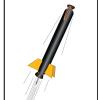
Foam Rocket
Source Institutions
In this activity, learners work in teams build and launch rubberband-powered foam rockets.

What's in Your Blood?
Source Institutions
Doctors often send a sample of blood to a lab, to make sure their patients are healthy.

Fog Chamber
Source Institutions
In this weather-related activity, learners make a portable cloud in a bottle.

Building a 3-D Space Maze: Escher Staircase
Source Institutions
In this activity (page 95 of the PDF), learners create Escher Staircase models similar to those that were used by Neurolab's Spatial Orientation Team to investigate the processing of information about
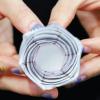
Space Origami: Make Your Own Starshade
Source Institutions
In this activity, learners cut out and fold their own collapsible origami starshade, an invention that shields a telescope's camera lens from the light of a distant star so that NASA scientists can ex
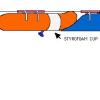
Balloon Staging
Source Institutions
In this activity, learners simulate a multistage rocket launch using party balloons, fishing line, straws, and a plastic cup.
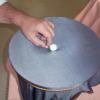
Gravity and Falling
Source Institutions
This fun and simple hands-on astronomy activity lets learners experiment with a bucket, stretchy fabric, marbles, and weights to discover some basics about gravity.
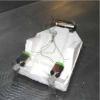
Airboat
Source Institutions
In this activity related to Newton's Laws of Motion, learners build a boat powered by a propeller in the air.
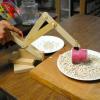
Digger
Source Institutions
In this activity, learners build their own construction cranes using tongue depressors and pushpins.

Glitter Slime
Source Institutions
Our bodies defend themselves in many different ways to prevent us from getting sick.

3D-tection: Trying to Fit In
Source Institutions
In this activity, learners explore how molecules must fit together, like a lock and key, in order to identify each other and initiate a new function as a combined unit.
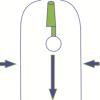
Cartesian Diver
Source Institutions
In this quick activity (page 1 of the PDF under SciGirls Activity: California Fish), learners will build a simple Cartesian Diver in an empty 2-liter bottle.
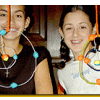
Atomic Mobile
Source Institutions
Learners make a mobile model of a carbon atom using clay, wire, and pipe cleaners.

Polar Opposites
Source Institutions
In this activity, learners make a 3-D model of magnetic fields by inserting a small, strong magnet into a sphere.

Pop Can "Hero Engine"
Source Institutions
In this activity, learners build water-propelled engines from soft drink cans.

Exploring Fabrication: Self-Assembly
Source Institutions
In this activity, learners participate in several full-body interactive games to model the process of self-assembly in nature and nanotechnology.
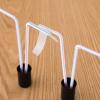
Electroscope
Source Institutions
In this activity about electricity, learners suspend pieces of tape from a straw to construct an electroscope, a device that detects an electrical charge.
